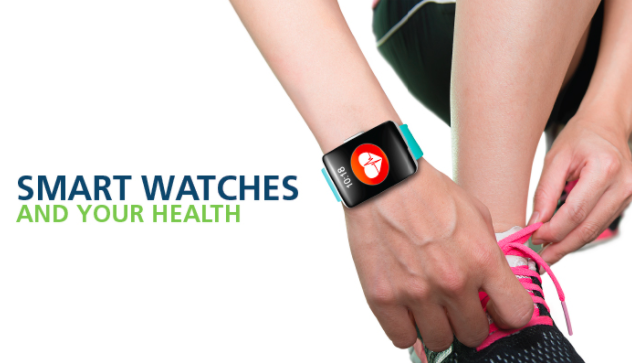Smart watches can support health in everyday life due to: the ability to self-control personal activity; receiving feedback on performance indicators; the ability to conduct on-site surveys to identify patterns of behavior; and maintaining two-way communication with health care providers and family members. However, smart watches are new technology and research with these devices is in its infancy.
There’re a lot of Health benefits of smart watch. At its most basic level, smart watches are an extension of a smartphone: they receive notifications, answer phone calls from your wrist, allow you to use apps, and show the time. But the main advantage of smart watches is that you almost always wear them. This allows owners of smart watches to communicate with each other in previously impossible ways. This permanent feature goes a long way in changing the lifestyle of watch wearers, even their health. Here are five ways a smart watch can help improve your health:
Table of Contents
5 Health benefits of smart watch
- Tracking steps
Health benefits of smart watch One of the easiest ways to improve your health and increase your activity level is to take 10,000 steps a day. The smart watch has built-in pedometers, making it easy to see the number of steps taken. While the accuracy of these pedometers is questionable, what’s more important is that you move to reach your goal. Read more
- Sleep monitoring
The Centers for Disease Control (CDC) reports that more than a third of US adults sleep less than 7 hours a night. Long-term lack of sleep can have long-term negative effects on the body. The smart watch, when worn at night, can track sleep patterns. They can tell you how many hours you sleep and how many hours continuously. While these sleep statistics are not a substitute for professional sleep research, they can help you identify patterns and set goals to improve the quality and quantity of sleep.
- Goal setting
Many smart watches have built-in goal-setting apps. For example, you can set a goal to take a certain number of steps or sleep for a certain number of hours, and a goal counter will tell you how you are progressing towards your goal today and in the future. It provides incentives and rewards for achieving your health goals.
- Workout reminders
We all know we have to exercise, but often the hardest part of training is making it a habit. Setting workout reminders is a great way to turn a good goal into a good habit. The advantage of a reminder on a smart watch rather than a smartphone is that it is more difficult to refuse. It’s easy to miss a reminder if you don’t have a phone, but the smart watch will vibrate on your wrist to tell you it’s time to go to the gym.
- Timers and stopwatches
While this isn’t necessarily a new feature for smart watches, as they’ve been available for digital watches for years, timers and stopwatches are incredibly useful for runners, swimmers, and cyclists.
Fitness apps
Just like smart phones, smart watches can have apps. Although limited in functionality, there are health and fitness apps that can meet your individual health goals and needs.
- It is easier to listen to jams while exercising
You can have your favorite tunes on your smartphone, but exercising with a large phone is often inconvenient. Many smart watches allow you to download a limited number of your favorite songs directly to your watch, regardless of your smartphone. Combined with Bluetooth headphones, this provides greater convenience and comfort during exercise. While music alone will not improve your health, it can motivate you to exercise.
- Custom watch faces
One of the most popular smart watch features is the ability to customize watch faces, allowing you to express your personality. In addition to funny colorful watch faces, many smart watches allow you to add health tracking features to the main watch face. Adding steps or goals taken to the watch face puts health first. The more you see it, the more it reminds you to take an active part in your health.
Data synchronization for analysis
While smart watches have limited processing capabilities on their own, they are always connected to smart phones, allowing you to sync the health statistics you have collected (sleep, steps, etc.) with your phone. There are a lot of benefits of monitoring health statistics On your phone, you can use native apps like Apple Health or other third-party data analysis apps. This will help you understand your habits and progress, as well as set future goals.












